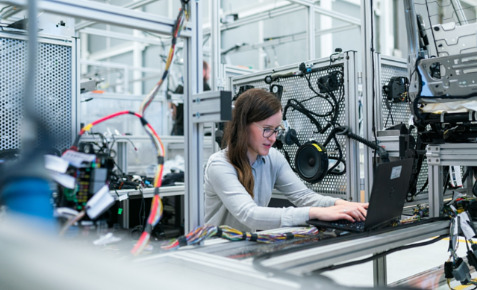It’s no secret that technology is constantly evolving. What’s popular today may be gone tomorrow, and new technologies are always emerging to take their place. It can be hard to keep up with the latest and greatest, but it’s important to try. As a business, you need to stay ahead of the curve to stay competitive. That’s why we’ve put together a list of the five latest technologies that are gaining great importance. From artificial intelligence to the internet of things, these are the technologies you need to know about.
Cloud Computing
Cloud computing is the delivery of computing services—including servers, storage, databases, networking, software, analytics, and intelligence—over the Internet (“the cloud”) to offer faster innovation, flexible resources, and economies of scale.
Most businesses use a combination of on-premises and cloud-based solutions. For example, many companies have moved email and office productivity applications (such as Microsoft Office 365) to the cloud, while maintaining on-premises applications for other business needs such as accounting or customer relationship management (CRM).
Big Data
The term “big data” has become one of the most talked-about topics in business and technology. It seems like every day there’s a new story about how big data is being used to solve a problem or improve a process.
But what exactly is big data? And why is it so important?
Big data is simply a large volume of data that can be difficult to manage and process using traditional methods. This data can come from many sources, including social media, sensors, transactions, and more.
What makes big data so valuable is its ability to be analyzed to reveal patterns, trends, and insights that can be used to make better decisions. For example, big data has been used to improve customer service, target marketing efforts, and even prevent fraud.
As the world generates more and more data, the importance of big data will only continue to grow. businesses and organizations that are able to effectively harness the power of big data will have a significant competitive advantage.
Artificial Intelligence
There is no doubt that artificial intelligence (AI) is rapidly evolving and growing more sophisticated every day. With the rapid expansion of AI capabilities, businesses are starting to take notice and are beginning to adopt AI technologies in order to stay competitive.
AI can be used for a variety of tasks, such as data analysis, predictive modelling, and process automation. By automating repetitive tasks, businesses can free up employees to focus on more creative and strategic work. Additionally, AI can help businesses make better decisions by providing insights that would otherwise be unavailable.
As AI continues to evolve, it will become increasingly important for businesses to adopt AI technologies in order to stay ahead of the competition.
Internet of Things
The Internet of Things, or IoT, is a system of interconnected devices and sensors that can collect and share data. IoT devices can range from simple devices like fitness trackers to more complex ones like industrial machines.
IoT has the potential to revolutionize the way we live and work. For example, connected devices can be used to increase efficiency in the workplace and at home. They can also be used to improve public safety and create new opportunities for leisure activities.
IoT technology is still in its early stages, but it is already having a major impact on the world around us. In the future, IoT will become even more ubiquitous and integrated into our everyday lives.
Blockchain
The distributed ledger technology underlying cryptocurrencies like Bitcoin is known as blockchain. Blockchain offers a way to securely and efficiently record transactions between parties.
Each transaction is recorded as a “block” on the “chain,” and each block contains a cryptographic hash of the previous block, a timestamp, and transaction data. This makes it difficult for anyone to tamper with the blockchain without being detected.
Blockchain has potential applications far beyond cryptocurrency. For example, it could be used to create tamper-proof records for things like voting or medical records. Some companies are already exploring how to use blockchain for supply chain management and identity verification.











